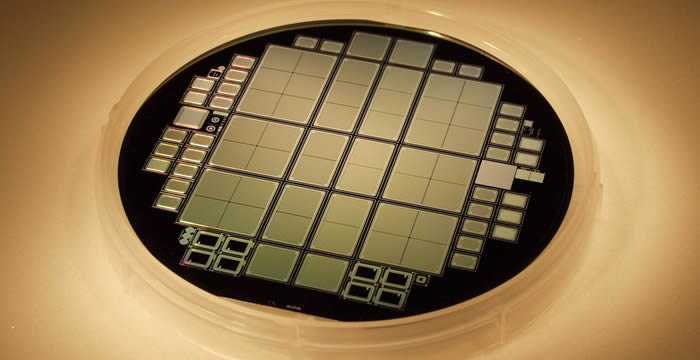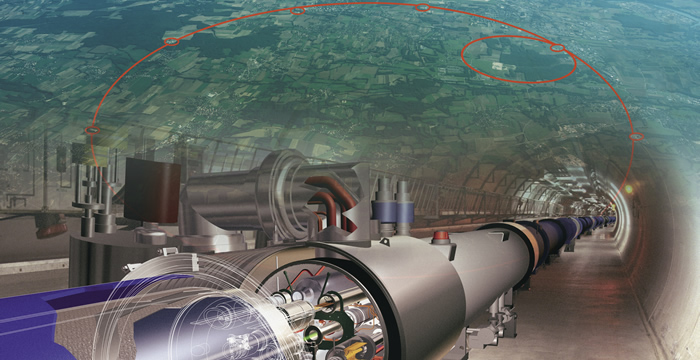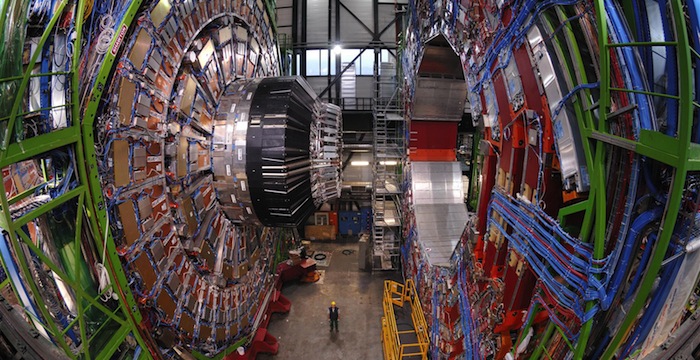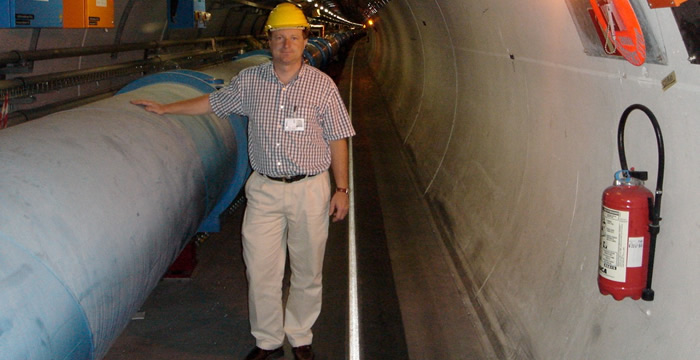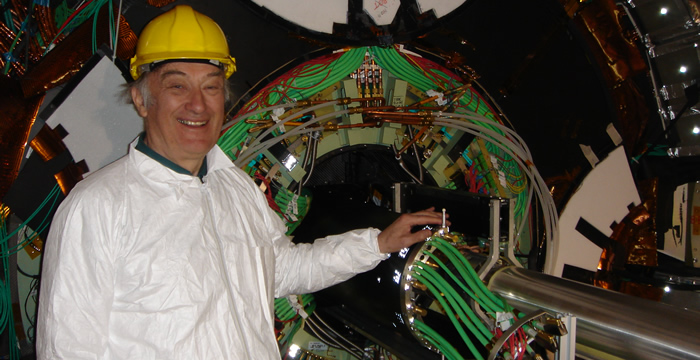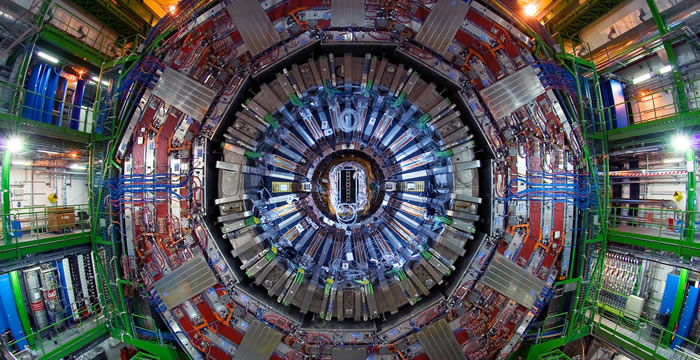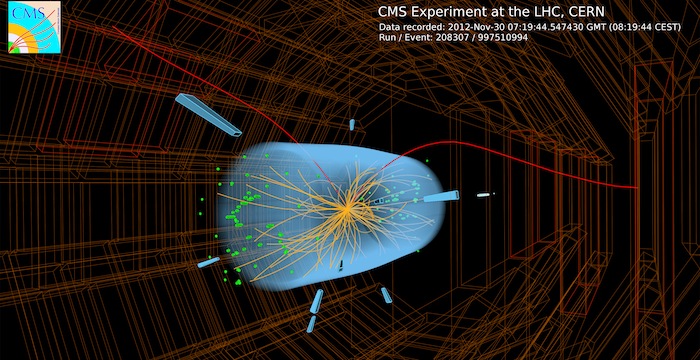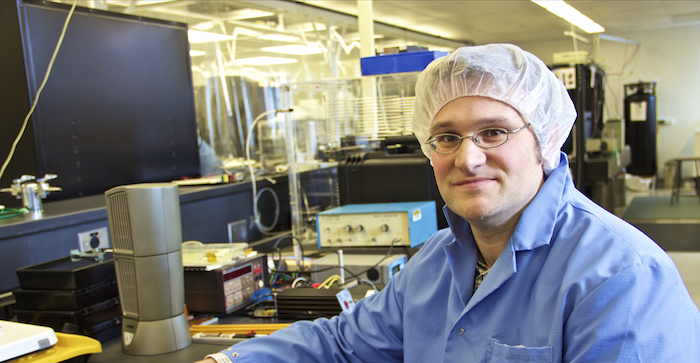Particle Physics at Purdue
Particle physics research attempts to answer fundamental questions about the nature of space itself, the matter that fills it and the physical laws that govern its behavior and consequently, the large-scale structure and behavior of the universe. The currently most complete theoretical description of fundamental particles and their interactions is realized in the "Standard Model".
The study of fundamental particles - quarks, leptons and the particles that mediate the forces between them - are carried out by experiments (CMS, CDF, D0) at high energy particle accelerators, which probe the smallest distance scales observed in nature. These same accelerators also provide ways to study the properties of dissociated nuclear matter at temperatures not seen since the birth of the universe. In contrast, measurements of the large scale structure of the universe and how it evolved up to the present time, are to be carried out using a new generation of optical telescopes (LSST). We also search for direct evidence of new types of matter (XENON), whose existence is inferred from a range of unanswered questions from previous experiments and for new types of interactions between fundamental particles that could exist at mass scales that lie far beyond the reach of conventional accelerators (Mu2e).
An overview of the theory groups working on topics related to Particle Physics is available here: Theoretical Particle Physics.
Particle physics research at Purdue has a long history, and the current experiments reflect the natural evolution of the scientific process that began in the 1950's with the study of newly observed types of matter in cosmic rays. Detailed studies of these particles led to Purdue's involvement in the construction and operation of major experiments at various particle accelerator facilities around the world. Purdue's current accelerator-based research is conducted primarily using the Large Hadron Collider (LHC) at CERN, but has included past experiments hosted at Fermilab, Brookhaven National Lab, Cornell, DESY, KEK, and SLAC.
Latest News
- Scientists ‘at the bleeding edge’ with upgrade to CMS detector
- A new inner detector installed for CERN CMS experiment
- Purdue physics professor leads research efforts at CERN
- A detector shines in search for dark matter
- Physics Prof. David Miller discusses 50 years at Purdue
- Theory of Higgs field earns Nobel Prize, Purdue physicists part of experiment that proved it
- Higgs boson: One year later
- Purdue physicists part of discovery of new particle that could be Higgs boson
- VIDEO: Prof. Matthew Jones talks Higgs boson

